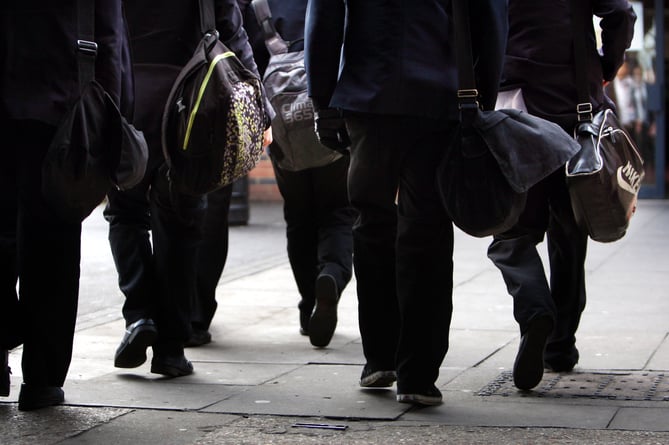Schools in Gloucestershire have offered almost 150 places to children fleeing the Ukraine conflict, new data shows.
The UK Government currently operates resettlement schemes for refugees and migrants leaving Ukraine, Afghanistan and Hong Kong – many of whom are families with children.
Figures from the Department for Education show at least 140 Ukrainian pupils have been offered school places in Gloucestershire as of May 27 – the latest available data.
A further four pupils were still waiting for an outcome to their application but may since have been granted a place.
The figures also show that 15 offers have been given to pupils settled from Afghanistan and 57 to children from Hong Kong.
The Government estimated 11,400 applications have been made for Ukrainian child refugees nationally up to May 27, of which nearly 10,000 had been given offers – including around 1,200 in the South West.
A further 5,400 Afghan and 8,000 Hong Kong pupils have been offered places in English schools, according to estimates.
The figures were compiled through a survey given to local authorities, with 77% of councils responding.
Separate data from the Home Office and the Department for Levelling Up, Housing and Communities show 1,129 refugees had been given visas in Gloucestershire under the Homes for Ukraine Scheme as of July 5, 843 of which have arrived in the UK.
This is up from four weeks ago, when there were 645 arrivals from 977 offers.
The Association of School and College Leaders, which represents school heads, said that while refugee pupils have been warmly welcomed by schools, there is more work to be done to support them.
Geoff Barton, the organisation's general secretary said: “The main challenges are the language barrier and supporting the children with the trauma they have experienced.
“We are concerned about the availability of wider specialist support for their mental health and wellbeing which schools can draw upon.
“Our impression is that this is patchy and that schools are largely doing this on their own without any additional resources.”
Save the Children, a children's charity, agreed that more help is needed for Ukrainian pupils.
Dan Paskins, director of UK impact, said: “We are calling for more skilled caseworkers to speed up applications to come to the UK and to help if placements break down, and for more specialist mental health support for children and families."
The charity said it wants a similar sponsorship approach to be extended to refugees from other countries.
The Department for Education has admitted that some children may not yet have school places in the UK, but says this could be due to pupils undertaking remote learning from Ukraine, or parents not realising that the English academic year finishes later than in Ukraine.
It added it is working to ensure all Ukrainian pupils can have a place in UK schools, asking families to apply now rather than wait for the new academic year in September.




